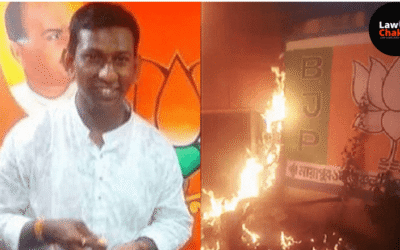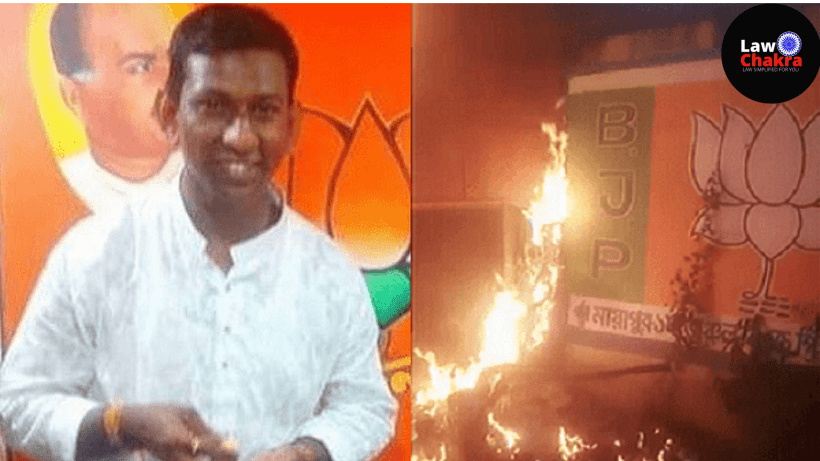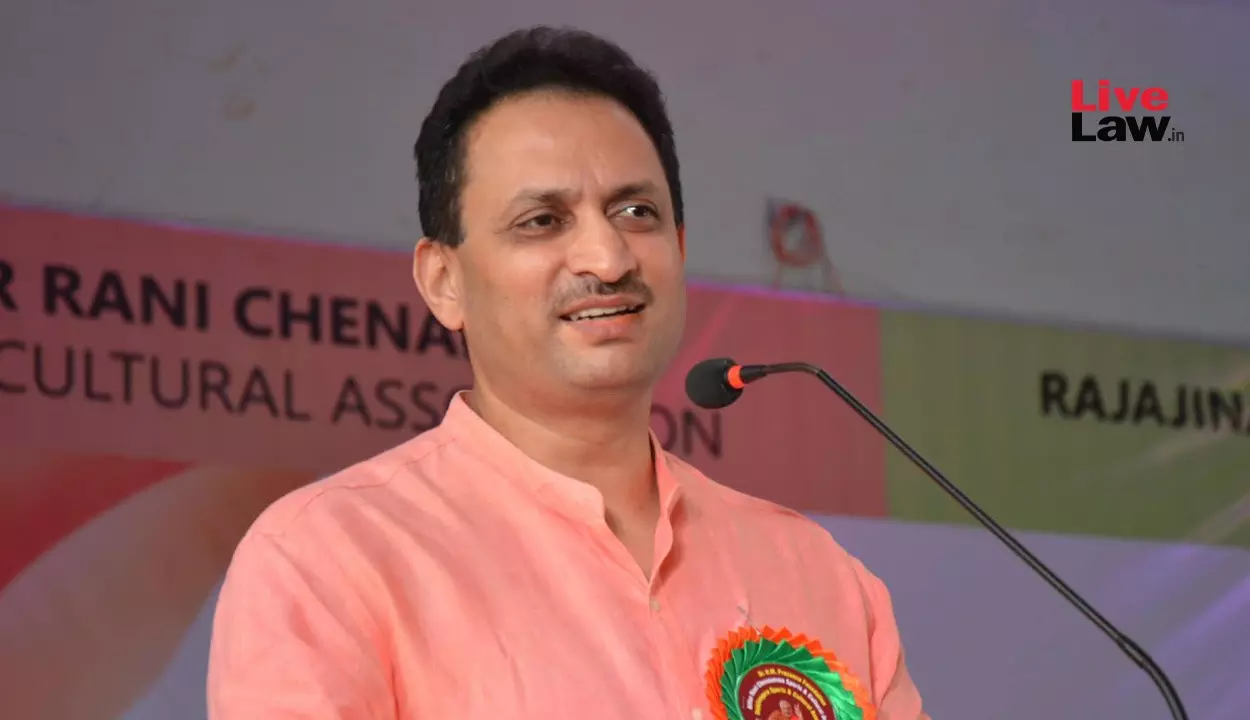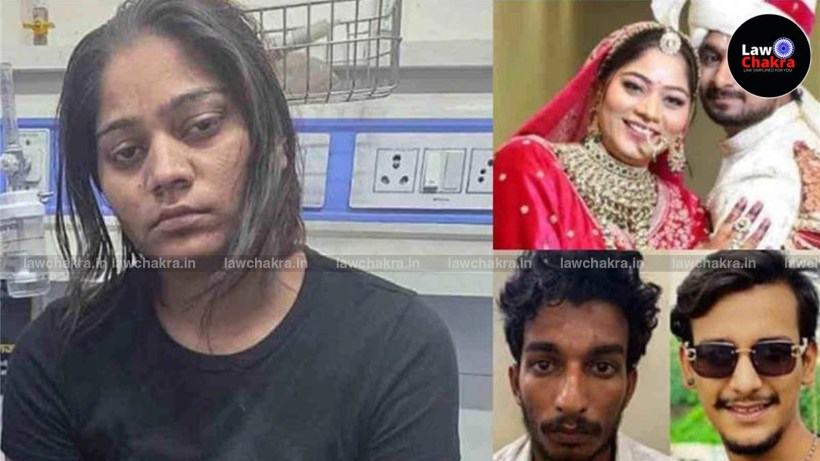Summoning Advocates By Enforcement Directorate
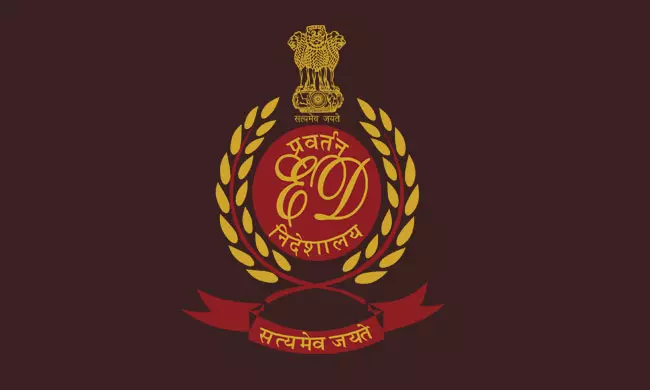
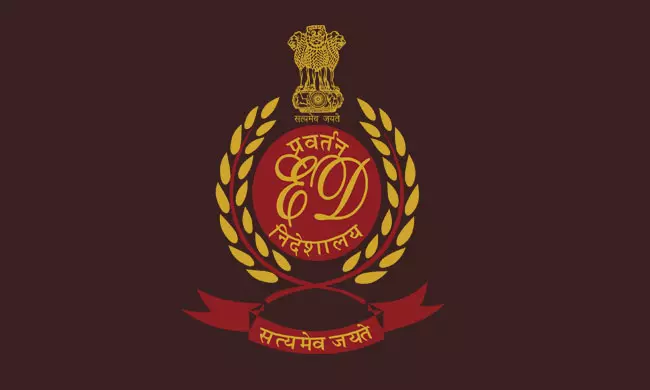
On 14.06.2025, the Enforcement Directorate (ED) issued summons under PMLA Section 50 to Senior Advocate Arvind Datar in connection with its investigation into the Employee Stock Option Plan (ESOP) granted by Care Health Insurance (previously Religare Health Insurance) to former Religare Enterprises Chairperson Rashmi Saluja. SCAORA, Madras Bar Association, Delhi High Court Bar Association, Gujarat High Court Advocates Association and the statement by SCBA President amongst several other senior advocates condemned this act by ED in the strongest terms with SCAOARA stating that such a notice was a “chilling message to the legal community at large and threatens the foundational right of every citizen to receive independent legal counsel without fear or intimidation“. Subsequently, on 16.06.2025, ED withdrew the summons to Arvinda Datar.
Two days later, on 18.06.2025, ED issued summons under PMLA Section 50 to Senior Advocate Pratap Venugopal in the same case. SCAORA, SCBA, Madras High Court Advocates’ Association (MHAA) and several Advocates again condemned this act by ED in the strongest terms with SCAORA writing to CJI stating that ED’s action has serious ramifications for “independence of the legal profession” and the “foundational principle of lawyer-client privilege” and therefore requesting the CJI to “take urgent suo-moto cognizance of this matter” and thereafter requesting CJI to:
(i) “Examine the legality and propriety of such summonses issued to legal professionals for opinions tendered in good faith.
(ii) Safeguard of the constitutional and professional protections afforded to advocates.
(iii) Lay down appropriate guidelines to prevent any further erosion of lawyer-client privilege and upholding independence of the Bar.”
SCAORA wrote “These actions, by the ED, we believe, amount to an impermissible transgression of the sacrosanct lawyer-client privilege and pose a serious threat to the autonomy and fearless functioning of advocates. Such unwarranted and coercive measures against senior members of the Bar for discharge of professional duties set a dangerous precedent, potentially resulting in a chilling effect across the legal community… …The role of an advocate, in offering legal advise, is both privileged and protected. Interference by investigative agencies…strikes at the heart of the rule of law.”
Subsequently, on 20.06.2025, ED withdrew the summons to Pratap Venugopal.
The issuance of such notices by ED to two Senior Advocates in the last few days have opened up the interesting legal question “Does ED have over-riding powers under Section 50 of the Prevention of Money Laundering Act, 2003 (“PMLA”) to force a practicing Advocate, especially with clients who are being investigated by ED to give statements, share files, share file notes, open his / her email accounts, provide passwords, give email dumps and access to other privileged documents and communication disregarding the protection under Bharatiya Sakshya Adhiniyam 2023 Sections 132, 133 and 134 (previously Indian Evidence Act, 1872 Sections 126, 127, 128 and 129)?”
Interestingly, late on 20.06.2025, ED through Deputy Director (Legal), issued Circular No. 03/2025 dated 20.06.2025 – Directive for issuing summons to Legal Practitioners / Advocates / Lawyers – wherein it has directed all ED Offices and ED Officers that “…it is directed that no summons shall be issued to any advocate in violation of Section 132 of the BSA, 2023. Further, if any summon needs to be issued under the exceptions carved out in proviso to Section 132 of the BSA, 2023, the same shall be issued with the prior approval of the Director, ED”.
What forced ED Director to issue the Technical Circular No. 03/2025 dated 20.06.2025 – Directive for issuing summons to Legal Practitioners / Advocates / Lawyers?
Powers of ED under PMLA to summon a person, produce documents and give evidence
PMLA Section 50. “Powers of authorities regarding summons, production of documents and to give evidence, etc.
(1) The Director shall, for the purposes of Section 12, have the same powers as are vested in a civil Court under the Code of Civil Procedure, 1908 (5 of 1908) while trying a suit in respect of the following matters, namely:
(a) discovery and inspection;
(b) enforcing the attendance of any person, including any officer of a [reporting entity] [Substituted for the words “banking company or a financial institution or a company,” by Act No. 2 OF 2013], and examining him on oath;
(c) compelling the production of records;
(d) receiving evidence on affidavits;
(e) issuing commissions for examination of witnesses and documents; and
(f)any other matter which may be prescribed.
(2) The Director, Additional Director, Joint Director, Deputy Director or Assistant Director shall have power to summon any person whose attendance he considers necessary whether to give evidence or to produce any records during the course of any investigation or proceeding under this Act.
(3) All the persons so summoned shall be bound to attend in person or through authorised agents, as such officer may direct, and shall be bound to state the truth upon any subject respecting which they are examined or make statements, and produce such documents as may be required.
(4) Every proceeding under sub-Sections (2) and (3) shall be deemed to be a judicial proceeding within the meaning of Section 193 and Section 228 of the Indian Penal Code (45 of 1860).
(5) Subject to any rules made in this behalf by the Central Government, any officer referred to in sub-Section (2) may impound and retain in his custody for such period, as he thinks fit, any records produced before him in any proceedings under this Act:
Provided that an Assistant Director or a Deputy Director shall not
(a) impound any records without recording his reasons for so doing; Or
(b) retain in his custody any such records for a period exceeding three months, without obtaining the previous approval of the [Joint Director] [Substituted ‘Director’ by Finance Act, 2018 (Act No. 13 of 2018) dated 29.3.2018.].”
Under the PMLA, a person is required to give TRUTHFUL STATEMENT if such person is summoned by the Director or other Officers of ED authorized under the PMLA. This power to the director (or other officers) is given under Section 50 (2) of PMLA which provides that the Director (or additional director, joint director, deputy director or assistant director) has the power to summon any person whose attendance he or she considers necessary whether to give evidence or to produce any records during the course of any investigation or proceeding. All such summoned persons are bound to state the truth or make statements and produce such documents as may be required (Section 50 (3) of PMLA).
Advocate – Client Privilege: Origin and Context in Common Law
The Advocate-Client Privilege is one of the oldest privileges recognized by Anglo-American jurisprudence. In fact, the principles of the testimonial privilege may be traced all the way back to the Roman Republic, and its use was firmly established in English law as early as the reign of Elizabeth I in the 16th century. Grounded in the concept of honor, the privilege worked to bar any testimony by the advocate against the client. In the concept of advocate – client privilege, which first appears to have originated and recognized in the 16th century in England, the privilege seemed to be based upon the honor of the advocate and belonged to the advocate, who could waive it. During the 18th century, the courts found a new rationale in protecting the client from apprehension that his confidential information may be betrayed by the advocate and his office. By the middle of the 19th century, it was recognized that the privilege belonged to the client. At first, it existed only when a confidential matter had been communicated to a lawyer during litigation. Over time, it extended to any consultation for legal advice.
As the Advocate – Privilege evolved over time, numerous policy justifications have played a role in its evolution and development. At its most basic, the advocate – client privilege ensures that one who seeks advice or aid from an Advocate should be completely free of any fear that his secrets will be uncovered and the lawyer who advises a client is free from any threat of interference from and by any third party including the government, judiciary, media and investigating agencies. Thus, the underlying principle of the privilege is to provide for “sound legal advice [and] advocacy.” With the security of the privilege, the client may speak frankly and openly to legal counsel, disclosing all relevant information to the advocate and creating a “zone of privacy” and the advocate may provide appropriate legal advice without fear or apprehension of any kind. In other words, with the protection of and by the privilege, the client may be much more comfortable and willing to communicate to the advocate things that the client may otherwise suppress. In theory at least, such forthrightness, honesty and truthfulness will assist the advocate in providing better, more accurate, and well-reasoned professional legal advice. And the client will and can be secure in the knowledge that his statements to his lawyer will not be taken as an adverse admission or used against his interest in any manner whatsoever. Indeed, armed with full background, context and knowledge of the client’s case and situation, the advocates will be better equipped to satisfy all of their professional responsibilities, uphold their duties of good faith and loyalty to the client, and contribute to the efficient administration of justice.
Although the definition of advocate-client privilege can vary based on the legal authority referred to, a respected common law definition is:
“Where legal advice of any kind is sought from a professional legal adviser in his [or her] capacity as such, the communications relating to that purpose, made in confidence by the client, are at his [or her] instance permanently protected from disclosure by [the client] or by the legal adviser, except the protection be waived.” (John Henry Wigmore, Evidence in Trials at Common Law § 2292, at 554 (McNaughton 1961 & Supp. 1991))
The Model Code of Evidence, Rule 210, Comment a (1942), American Law Institute, has expressed the purpose of the privilege in a comment as follows: “In a society as complicated in structure as ours and governed by laws as complex and detailed as those imposed upon us, expert legal advice is essential. To the furnishing of such advice the fullest freedom and honesty of communication of pertinent facts is a prerequisite. To induce clients to make such communication, the privilege to prevent their later disclosure is said by courts and commentators to be a necessity. The social good derived from the proper performance of the functions of lawyers acting for their clients is believed to outweigh the harm that may come from the suppression of the evidence in specific cases“.
Advocate – Client Privilege: Origin and Context in Indian Law
The legal basis for Advocate – Client Privilege in India is in the Indian Evidence Act, 1872 (“IEA”) specifically Sections 126, 127, 128 and 129 in IEA. However, with the coming into force of Bharatiya Sakshya Adhiniyam, 2023 (“BSA”), BSA sections 132, 133 and 134 (which replaced Sections 126, 127, 128 and 129 IEA) is applicable and becomes the basis for Advocate – Client Privilege. This is further strengthened by Bar Council of India Rules (“BCI Rules”) 15, 17 and 24 in Section II, Chapter II in Part IV.
Bharatiya Sakshya Adhiniyam, 2023 (“BSA”) – Sections 1, 132, 133 and 134 (previously Indian Evidence Act 126, 127, 128 and 129)
Section 1 BSA
“1. Short title, application and commencement.
(1) This Act may be called the Bharatiya Sakshya Adhiniyam, 2023.
(2) It applies to all judicial proceedings in or before any Court, including Courts-martial, but not to affidavits presented to any Court or officer, nor to proceedings before an arbitrator.
(3) It shall come into force on such date as the Central Government may, by notification in the Official Gazette, appoint”.
(Came into effect with effect from 01.07.2024)
Previously Section 1 of Indian Evidence Act, 1872 (“IEA”)
Section 132 BSA
“132. Professional communications.
(1) No advocate, shall at any time be permitted, unless with his client’s express consent, to disclose any communication made to him in the course and for the purpose of his service as such advocate, by or on behalf of his client, or to state the contents or condition of any document with which he has become acquainted in the course and for the purpose of his professional service, or to disclose any advice given by him to his client in the course and for the purpose of such service:
Provided that nothing in this section shall protect from disclosure of-
(a) any such communication made in furtherance of any illegal purpose;
(b) any fact observed by any advocate, in the course of his service as such, showing that any crime or fraud has been committed since the commencement of his service.
(2) It is immaterial whether the attention of such advocate referred to in the proviso to sub-section (1), was or was not directed to such fact by or on behalf of his client.
Explanation. – The obligation stated in this section continues after the professional service has ceased.
Illustrations.
(a) A, a client, says to B, an advocate-“I have committed forgery, and I wish you to defend me”. As the defence of a man known to be guilty is not a criminal purpose, this communication is protected from disclosure.
(b) A, a client, says to B, an advocate-“I wish to obtain possession of property by the use of a forged deed on which I request you to sue”. This communication, being made in furtherance of a criminal purpose, is not protected from disclosure.
(c) A, being charged with embezzlement, retains B, an advocate, to defend him. In the course of the proceedings, B observes that an entry has been made in A’s account book, charging A with the sum said to have been embezzled, which entry was not in the book at the commencement of his professional service. This being a fact observed by B in the course of his service, showing that a fraud has been committed since the commencement of the proceedings, it is not protected from disclosure.
(3) The provisions of this section shall apply to interpreters, and the clerks or employees of advocates”.
(Previously Section 126 and 127 of Indian Evidence Act, 1872 (“IEA”))
Section 133 BSA
“133. Privilege not waived by volunteering evidence.
If any party to a suit gives evidence therein at his own instance or otherwise, he shall not be deemed to have consented thereby to such disclosure as is mentioned in section 132; and, if any party to a suit or proceeding calls any such advocate, as a witness, he shall be deemed to have consented to such disclosure only if he questions such advocate, on matters which, but for such question, he would not be at liberty to disclose”.
(Previously Section 128 of Indian Evidence Act, 1872 (“IEA”))
Section 134 BSA
“134. Confidential communication with legal advisers.
No one shall be compelled to disclose to the Court any confidential communication which has taken place between him and his legal adviser, unless he offers himself as a witness, in which case he may be compelled to disclose any such communications as may appear to the Court necessary to be known in order to explain any evidence which he has given, but no others”.
(Previously Section 129 of Indian Evidence Act, 1872 (“IEA”))
From hereon, only BSA Sections are used but the relevant IEA Sections may be read in as required.
The above prohibitions and restrictions on disclosure of advocate – client communications in BSA are further bolstered by the provisions of the BCI Rules enacted under the Advocates Act, 1961, which govern the conduct of Advocates in India. Interestingly, Section 132 BSA also includes interpreters, the clerks or employees of Advocates thereby protecting the entire law office under the Advocate – Client privilege protection available under BSA.
Bar Council of India Rules 15, 17 and 24 in Section II, Chapter II in Part IV on Maintaining Client Confidence, Upholding Client Confidentiality, and Fearless Upholding of Client Interest (under Section 49 of the Advocates Act, 1961)
Section 4 of the Advocates Act, 1961, deals with the Bar Council of India (“BCI”) and Section 49 of the Act allows the BCI to make rules to ensure fairness, integrity, and trustworthiness in legal practice. The BCI has framed the rules on professional standards that an advocate needs to maintain. These are mentioned under Chapter II, Part IV of the BCI Rules.
The BCI Rules stipulate certain standards of professional conduct and etiquette for all advocates.
Specifically, Part IV, Chapter II, Section II:
Rule 17 states “An advocate shall not, directly or indirectly, commit a breach of the obligations imposed by Section 126 of the Act”, thus reiterating the spirit of advocate-client privilege.
Further, Rules 15 and 24 Part IV, Chapter II, Section II of the BCI Rules on “An Advocate’s Duty Towards the Client” provides as follows:
Rule 15. “It shall be the duty of an Advocate fearlessly to uphold the interests of his client by all fair and honourable means without regard to any unpleasant consequences to himself or any other. He shall defend a person accused of a crime regardless of his personal opinion as to the guilt of the accused, bearing in mind that his loyalty is to the law which requires that no man should be convicted without adequate evidence”.
Rule 24. “An advocate should not misuse or takes advantage of the confidence reposed in him by his client”.
A breach of the above Rules would subject an advocate to disciplinary proceedings. In view of the above, privileged communication between an advocate and a client should not and cannot be disclosed by the Advocate without express consent of the client. The advocate has to absolutely maintain the confidence of the client without misusing or taking advantage of such confidence reposed in him by the client and further fearlessly, without succumbing to pressures and coercion of investigating agencies like ED, uphold the interest of the client without regard to any unpleasant consequences to himself or any other.
However, the key legal aspect why Advocate – Client Privilege holds fully vis a vis PMLA Section 50 is based on the combined reading of:
· PMLA Section 50 (4) which states “Every proceeding under sub-Sections (2) and (3) (Section 50) shall be deemed to be a judicial proceeding within the meaning of Section 193 and Section 228 of the Indian Penal Code (45 of 1860)”.
· BSA Short title, extent and commencement states “…applies to all judicial proceedings in or before any Court, including Courts-martial…”
· Section 132 BSA
“132. Professional communications.
(1) No advocate, shall at any time be permitted, unless with his client’s express consent, to disclose any communication made to him in the course and for the purpose of his service as such advocate, by or on behalf of his client, or to state the contents or condition of any document with which he has become acquainted in the course and for the purpose of his professional service, or to disclose any advice given by him to his client in the course and for the purpose of such service:”…
· Section 133 BSA
“133. Privilege not waived by volunteering evidence.
If any party to a suit gives evidence therein at his own instance or otherwise, he shall not be deemed to have consented thereby to such disclosure as is mentioned in section 132; and, if any party to a suit or proceeding calls any such advocate, as a witness, he shall be deemed to have consented to such disclosure only if he questions such advocate, on matters which, but for such question, he would not be at liberty to disclose”.
· Section 134 BSA
“134. Confidential communication with legal advisers.
No one shall be compelled to disclose to the Court any confidential communication which has taken place between him and his legal adviser, unless he offers himself as a witness, in which case he may be compelled to disclose any such communications as may appear to the Court necessary to be known in order to explain any evidence which he has given, but no others”.
PMLA Section 50 (4) states that every proceeding under sub-Sections (2) and (3) PMLA Section 50 shall be deemed to be a judicial proceeding within the meaning of Section 193 (Section 229 of BNS) and Section 228 (Section 228 of BNS) of the Indian Penal Code – 45 of 1860 (BNS 2023). And BSA Sections 132, 133 and 134 clearly and unequivocally provides full Advocate – Client Privilege to all judicial proceedings as per the short title, extent and commencement – BSA Section 1 – which states BSA applies to all judicial proceedings in or before any Court. And as pointed out above, when the ED Director exercises powers under PMLA Section 50, presumably, the ED Officer has the same powers as are vested in a Civil Court under the Code of Civil Procedure, 1908 (5 of 1908) and further every proceeding under PMLA Section 50, sub-Sections (2) and (3), is deemed to be a judicial proceeding and BSA Sections 132, 133 and 134 provides comprehensive protection to Advocates under Advocate – Client Privilege (except for the exceptions under the provisos to BSA Section 132) for PMLA Section 50 summons as statements recorded under PMLA Section 50 is deemed to be a judicial proceeding.
Further, PMLA Section 71 which states “71. Act to have overriding effect. The provisions of this Act shall have effect notwithstanding anything inconsistent therewith contained in any other law for the time being in force” does not conflict with BSA 132, 133 and 134 and hence does not and cannot have any overriding effect over BSA 132, 133 and 134 which ensures that Advocate – Client Privilege provided by these BSA Sections to Advocates and Advocate Offices remains fully, totally and comprehensively. Further, the relevant Bar Council Rules make it incumbent on the Advocate to ensure complete and total client confidence.
So, while the Privileges enjoyed by Advocates (Advocate – Client Privilege) in India both under the Bharatiya Sakshya Adhiniyam (previously Indian Evidence Act) and Advocates Act (Bar Council of India Rules) remain fully, totally and comprehensively under the combined reading of PMLA, BNSS (previously CrPC) and BSA (previously IEA), the test of the interplay between the primacy of PMLA (Section 50) over other laws versus the relevant “Privilege” (Advocate – Client Privilege) provisions under the BSA and Advocates Act (Bar Council of India Rules) read with BNSS is yet to take place in the Supreme Court of India. However, ED read the writing on the wall as to the crystal clarity of the applicable law as explained above and hence, the ED Director had to issue the Technical Circular No. 03/2025 dated 20.06.2025 – Directive for issuing summons to Legal Practitioners / Advocates / Lawyers before the Bar Associations hauled the ED to the Courts in this regard. However, also, while the law as it stands vis a vis PMLA and Advocate – Client Privilege is crystal clear as elaborated above, it remains to be seen as to the Advocate – Client Privilege vis a visa the powers of the Police (Investigating Agency) under the Indian Penal Code (“IPC”) (presently Bharatiya Nyaya Sanhita (“BNS”) as can be seen from the issues that arose in the Delhi Police Raids in the Office of Advocate Mehmood Pracha in 2020.
Two instances / examples of ED Summons to Advocates previous to the recent summons to Arvind Datar and Pratap Venugopal and the impact of the Bar’s reaction / response to the recent summons to Arvind Datar and Pratap Venugopal
In the context of the two recent PMLA Section 50 notices by ED to Arvind Datar and Pratap Venugopal, I also wish to put on record two specific and separate instances of ED summoning two Advocates under PMLA Section 50 in which the following happened:
1. A low-profile Advocate practicing in economic offences practice area was summoned by the ED in 2021 to ED Headquarters under PMLA Section 50 to give statement in a case being investigated by them. During the process, the advocate was asked to give the password to his email account and open the same to them for unfettered access and scrutiny. As his email account contained multitude of information related to client cases which were being investigated by ED themselves in addition to CBI, Economic Offences Wing of various Police Forces, Income Tax Department and several other agencies, the advocate politely but firmly refused to share password and access to his email account citing Sections 126, 127 and 129 of Indian Evidence Act (as applicable then) and Bar Council of India Rule 15, 17 and 24 in Section II of Chapter II in Part IV. The advocate wrote these Sections in the beginning of his Section 50 statement and mentioned clearly that he is not sharing the password and access to his email account for these reasons. Fortunately, better sense prevailed in the then ED Investigating Team and they did not arrest the advocate or prosecute the advocate despite him not sharing the password or access to his email account for the above cited reasons.
2. Mrs. Nalini Chidambaram, Senior Advocate, was summoned on 07.09.2016 by ED asking her to appear at its Kolkata office under PMLA Section 50 in the Saradha Chit Fund Scam Case. She refused to appear citing CrPC Section 160 provision that women cannot be called for investigation out of their place of residence. Though, she was named later by ED as an accused, the Kolkata PMLA Special Court ruled on 25.07.2025 that there was no prima facie case against Mrs. Nalini Chidambaram for money laundering in the high-profile Saradha chit fund scam and the supplementary chargesheet naming her was dismissed. So, the legal proposition of Advocate – Client Privilege remained untested in the matter of Mrs. Nalini Chidambaram though it was clearly established that providing legal counsel to accused or future accused will not and is not criminality and certainly fees received from accused and future accused is not and cannot be proceeds of crime under PMLA.
While the Advocate in the first instance is a low-profile Advocate , Mrs. Nalini Chidambram is a Senior Advocate with long standing and seniority in the Bar. Yet, when Mrs. Chidambaram was summoned by ED under PMLA Section 50 in violation of Advocate – Client privileges, no Bar Association across India or Senior Members of the Bar raised any protest as the Bar Associations and many Senior Members of the Bar have risen in unison protesting against the summons and condemning the summons issued by the ED to both Arvid Datar and Pratap Venugopal. However, the strong stand taken by the Bar will go a long way in ensuring that Police / Investigating Agencies including ED does not cross the Laxman Rekha of the Advocate – Client Privilege and issue summons and processes to Advocates in similar situations across India.
The author is a practicing Advocate. The views are personal.
The author thanks Advocates Ravi Krishna, Anish Kalathil, Jinesh K Menon and Ms. Fathima Richelle Mather, for their support in the content, editing and citation management.

